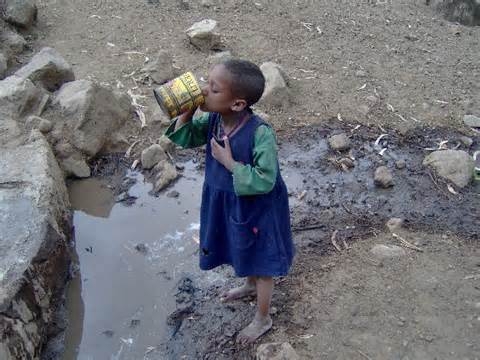Ghana: Ghana, Togo sign cross-border project for drinking water
2014/12/18

Togo and Ghana have signed a memorandum of considerate (MoU) to establish a cross-border water project, dubbed 'Drinking water Sogakope-Lome', which will supply about four million consumers in both nations with drinking water, PANA learnt here from official sources Tuesday.
The cross-border project, signed last Friday here, will be supported by the African Development Bank (AfDB). It will cost an estimated 2.195 million euros.
The MoU, which followed talks initiated in 2005 between the Ghana water limited and La Togolaise des Eaux (TdE), aims to increase the rate of access to drinking water for the target populations in the project areas.
The MoU, signed by Ghana's Minister of Water Resources, Works and Housing, Alhaji Dauda Collins, and the Togolese Minister for Rural Equipment, Bissoune Nabagou, contains the implementation modalities of the project and as well serves as a legal framework detailing commitments and obligations.
Under the agreement, water originated from Sogakope in the Volta Region, Ghana, will be channeled to Lome and neighboring communities.
According to figures made available to the press, Togo will receive 160,000 cubic metres of water per day, while the current daily consumption of drinking water in the country is 75,000 cubic metres.
- Related Articles
-
Ghana steps up to secure electricity supply
2016/06/19 The start of new gas production in Ghana has significantly improved the prospects for long-term increase in the country, although efforts to exploit domestic reserves for local power generation faced a minor setback before this year. While Ghana’s hydrocarbons sector has seen relatively stable output over the initial few months of 2016, a two-week period of inspection and maintenance work on the Kwame Nkrumah, a floating production, storage and offloading (FPSO) vessel, led to a temporary drop in gas supply to the power sector. The shutdown slowed gas supply to the Volta River Authority’s (VRA) thermal generating facilities in Aboadze, reducing output by 250 MW, according to local media. -
Ghana increases spending on transport infrastructure
2016/06/18 Moves by Ghana to expand port capacity are helping to reduce processing times and costs, although congested intermodal connections still limit throughput. Further spending to reinforce connectivity in road and rail networks will be necessary for Ghana to significantly increase its shipping capacity, but infrastructure upgrades and regulatory reforms are nonetheless helping to improve in general efficiency. Maritime development Currently, almost $2bn worth of investment is being put toward upgrading Ghana’s two major ports: Tema and Takoradi. -
Routes Africa forum aims to improve African air connectivity
2016/05/15 An event dedicated to the development of the African aviation industry will take place next month in Tenerife (26-28 June) to encourage the launch of new air services to, from and within the African continent. Routes Africa 2016 will help to improve African connectivity by bringing together airlines, airports and tourism authorities to discuss next air services. Around 250 route development professionals are expected to attend the forum which was founded ten years ago to stimulate increase in the industry. -
While Europe is on the verge of breaking up, Africa is reaping the benefits of integrating, growing and developing its trading blocks
2016/05/13 The collapse of virtual borders is one of the majority remarkable things to have happened in our lifetimes. In the world of cyberspace, time and distance have become almost peripheral considerations at the same time as it comes to doing business. Services from software development to accounting can be delivered across the world in the blink of an eye. Next business leaders will struggle to imagine an era at the same time as communication was neither immediate nor virtually free. -
Africa’s economic growth is likely to be slower in the intervening years
2016/05/12 Africa’s economic increase is likely to be slower in the intervening years than in the before decade, according to the new rating by Ernst & Young using a barometer to gauge the level of appeal and success.“The baseline projection of the International Monetary Fund (IMF) for 2016 is presently reduced to 3%, while it was estimated at 6.1% in April 2015″, Ernst & Young points out in its rating.
-
- Ghana News
-
- GHANA: Ghana steps up to secure electricity supply
- GHANA: Ghana increases spending on transport infrastructure
- BOTSWANA: Routes Africa forum aims to improve African air connectivity
- BOTSWANA: Economic integration is helping boost trade and investment in Africa
- BOTSWANA: Africa’s economic growth is likely to be slower in the intervening years
- BOTSWANA: Beyond Commodities: How African Multinationals Are Transforming
- Trending Articles
-
- AUSTRALIA: Australia taxes foreign home buyers as affordability bites
- SERBIA: China’s Xi sees Serbia as milestone on new ‘Silk Road’
- CHINA: United States sees China investment talks ‘productive’ after new offers
- INDIA: Indian central bank chief to step down in surprise move
- THAILAND: Foreign investment plummets in junta ruled Thailand
- UNITED STATES: Trump says Britain should leave EU




.gif?1356023993)
.gif2_.gif?1356029657)



